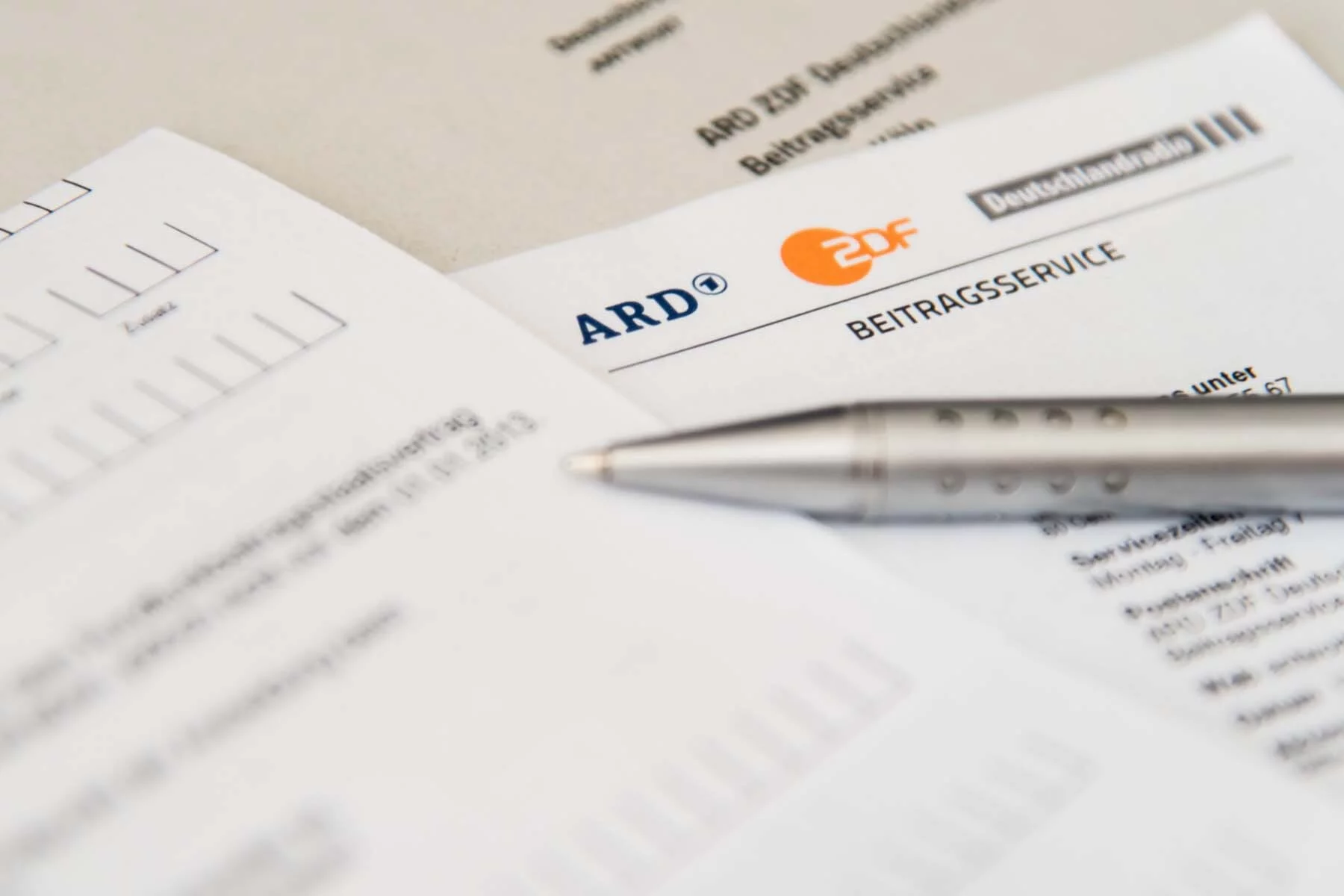If you’re living your best expat life in Germany, you could make it even better by switching on your TV or radio. Not only will you be able to pick up some much-needed German, but you’ll also be introduced to a whole new televisual world.
But if you want to mix up your entertainment between local favorites and international offerings, you’ll need to better understand your options when it comes to what’s one German TV and radio. To give you an idea, our guide includes information on the following:
DAZN
Wondering how to keep up with your favorite sports while living abroad? DAZN has you covered. With online and on-demand content, they offer a sport for everyone. Watch DAZN on your smart TV, smartphone, tablet, or games console and access top sporting events with a single subscription.
Watching TV in Germany
TV is big business in Germany. With around 40 million German households owning a television and an ever-growing number of channels and providers, the country has one of the most diverse TV markets in the world. And for expats arriving in the country, this means there are plenty of options when it comes to deciding what to watch.
There are a number of ways to watch TV in Germany. The country has a relatively accessible terrestrial TV platform that transmits programming digitally (via DVB). However, historical availability issues with the system have severely limited uptake. Today, it’s estimated that less than 5% of German households use terrestrial reception for their TV viewing. Instead, the vast majority of German households receive their TV through either cable or satellite. This is often bundled together with home phone and the internet, with providers offering additional TV subscriptions alongside the free-to-air channels. Some also offer other services such as catch-up platforms and interactive TV.
How to get a TV license in Germany
While many of the most-watched German TV channels are technically free-to-air, you’ll still need to pay your broadcasting fee (Der Rundfunkbeitrag) in order to legally watch them. In essence, this is a TV and radio license the government uses to fund the country’s public broadcasters, including TV and radio stations as well as online media libraries.

The license fee is set at €17.50 per month, although this is often billed quarterly. Thankfully, the fee is charged per household, not per occupant or television. However, regardless of whether you actually watch TV, you will need to pay the license fee. Quarterly payment requests are sent to your address once you have registered at the local citizen’s office. This will include information on how to pay, which will likely be via a bank transfer.
Exemptions to the license fee exist for some residents, including certain students. However, check the Rundfunkbeitrag website for more details. Failure to pay your license fee will see you incur further charges, so it’s best to pay early. Also, make sure you de-register with Rundfunkbeitrag when you leave Germany, otherwise, you could rack up charges in your absence.
Cable and satellite TV in Germany
With the enduring popularity of cable and satellite TV in Germany, expats looking to set up their TV connection will find plenty of options. Generally speaking, satellite connections offer a better and broader choice when it comes to programming. This is particularly true if you’re looking for international shows and channels. However, installing satellite receiving equipment can be expensive if your building doesn’t have an existing dish.

These days, most local residents receive their TV service as part of a package, bundled together with their home phone and internet connections. This can be a great way to save money. For more information, read our guide to setting up home phone, internet, and TV in Germany. The biggest providers of these services in Germany include:
The price you will pay will largely depend on the channels you choose to include in your subscription. Generally speaking, most will offer a basic package that includes all the biggest German channels along with a handful of international channels. However, be aware that a lot of German programming is dubbed.
For a better choice of English-speaking or other foreign language channels, you may want to consider adding a subscription service. You have the choice of streaming platforms or subscription-based TV services offering access to certain TV channels. This gives you plenty of choice, but you’ll need to do your research ahead of time to make sure you get the right one(s) for you. Subscription TV services in Germany include:
These are available as standalone subscriptions and typically offer a range of TV packages for a range of viewing tastes. The most popular of these include entertainment, movies, and sports packages.
German TV channels
Switch on the TV in Germany and you’ll have plenty of options to choose from, particularly if you receive your channels through cable or satellite. Channels are categorized as either free-to-air or pay-TV programming, so availability will depend on what you’re willing to pay. However, be aware that the vast majority of programming will be in German (including foreign shows dubbed into German).
Free-to-air TV channels in Germany
These channels are available through all cable and satellite TV providers in Germany, as well as the country’s terrestrial platform. The majority of the most popular free-to-air channels are operated by just a handful of companies, as follows:
- ARD – this consortium of German public broadcasters offers a mix of nationwide and regional programming, including the popular Das Erste (national) and the regional channels available on ARD Dritte.
- ZDF – another public broadcaster, operating Germany’s most popular TV channel, ZDF, alongside ZDFneo which markets itself towards a younger demographic.

- ProSiebenSat1. Media – another German commercial broadcaster with channels including ProSieben, Sat 1, and Kabel Eins.
- RTL – Germany’s largest commercial broadcaster has a range of free-to-air programming, including RTL and Vox, two of the country’s most popular channels.
Pay-TV channels in Germany
As well as these free-to-air channels, Germany also has a number of pay-TV channels. These are available through cable and satellite as part of TV subscription packages. The vast majority of these channels are operated by just a handful of broadcasters, as follows:
- DAZN – this online sports streaming service operates in 200 countries and offers a subscription for on-demand and live content.
- Sky – Sky Deutschland offers various channels, including English-speaking channels dedicated to international dramas, the latest Hollywood releases, and the biggest sporting competitions.
Disney – US broadcasting giant offering children’s channels on German pay-TV, including Disney Cinemagic and Disney Junior.
- MTV – this popular US network has a range of channels aimed at the youth market, including MTV Germany.
- RTL – the commercial broadcaster’s pay-TV channels include RTL Crime and RTL Passion.
If you’re interested in getting pay-TV channels in Germany, do your research beforehand to ensure you’re signing up for the right channels for you and your family.
International streaming services in Germany
These days, some of the most popular movies and TV series can only be found on streaming services. Thankfully for expats moving to Germany, the most popular streaming platforms are available throughout the country. These include:
- Netflix – the US streaming giant is one of the global heavy hitters and available throughout Germany. Monthly membership gives you access to its library of original programs and movies, as well as popular shows from around the world.

- Disney+ – the latest addition to the international streaming market offers a whole host of movies and TV shows from Disney’s back catalog. This includes The Simpsons and Star Wars. Global availability is currently limited to certain countries, but Germany is one of them.
- Amazon Prime Video – this membership-based service is available in over 200 countries and territories. Many shows are in English, but subtitles are available in other languages – including German if you want to practice your language skills.
Getting a VPN in Germany
Across the world, an increasing number of expats are using a Virtual Private Network (VPN) to ensure their privacy and security online. As well as helping you browse with more anonymity, these VPNs can also help unblock online content. This allows you to access your favorite sites from home and elsewhere, including some streaming platforms. VPNs available in Germany include:
Listening to the radio in Germany
If you’re the type of person who prefers to listen to your entertainment, Germany has over 500 national and regional radio stations for you to choose from. Radio stations are divided between public and commercial broadcasters, and most are only available in particular states.

German radio is available both digitally and through analog services. Stations can also be accessed through radios, smartphones, and some digital TV services. The largest public broadcaster is DeutschlandRadio, which operates four national radio stations. Other public radio stations operate on a regional level, so look into what’s available in your new home state.
Commercial radio stations are generally available at a state level, although several are operating in more than one region. Commerical stations cater to a wider range of listening tastes, from news and debate to classic Christian rock and all-day sports news and discussion.
If you’re looking for English-speaking radio, your best bet is to head online and listen digitally. Stations including those from the BBC are available online, and you’ll be able to pick up news, current affairs, and more.
Useful resources
- Federal Network Agency – Germany’s telecoms regulator







